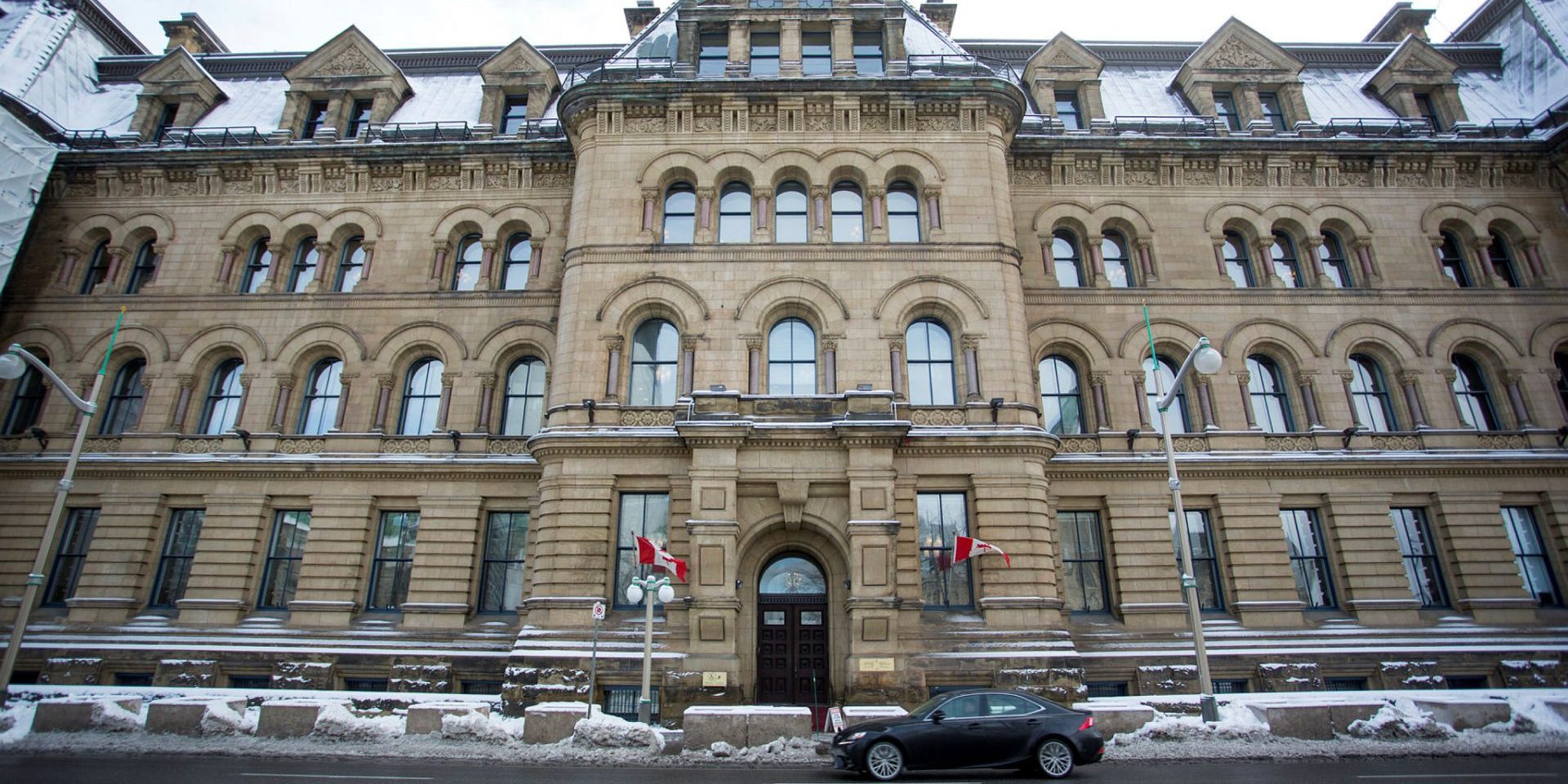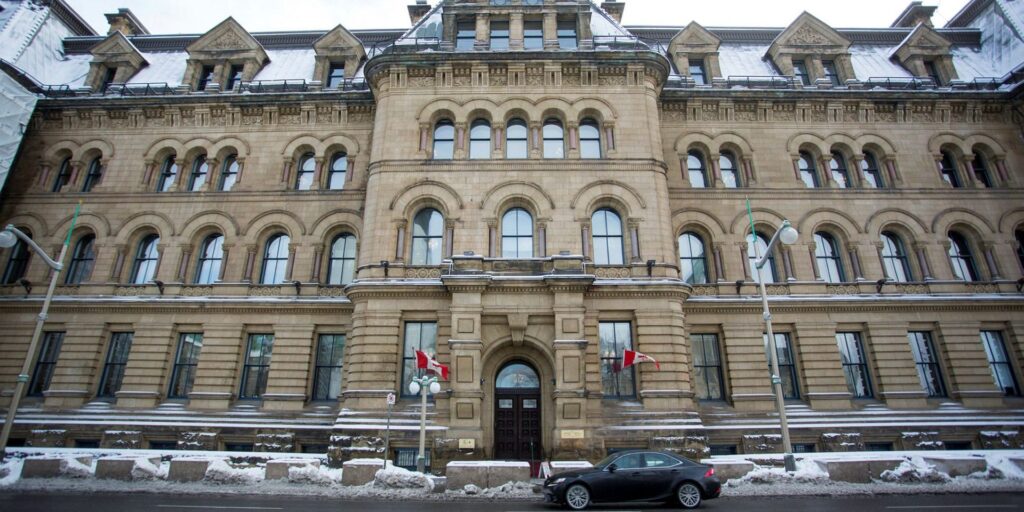Governing through Transition(s)

Published in the Hill Times on February 24, 2025
No matter who wins the next election, the government will need a bureaucracy that is politically savvy and quick to adapt to evolving situations and challenges.

The Prime Minister’s Office and the Privy Council Office, pictured in Ottawa. The federal government will need to put more emphasis and resources into intergovernmental communication and co-operation, including building the mechanisms necessary for knowledge transfer in critical policy areas like health and education, writes Lori Turnbull. The Hill Times photograph by Andrew Meade
2025 is shaping up to be a year of transition – and a very busy time for Canada’s public service. We will have a new prime minister soon as well as an election at some point afterwards. Parliament, now prorogued, is set to return on March 24th – though that could change if the new prime minister chooses to dissolve Parliament and go to election instead. Meanwhile, Canada is in the throes of a trade war with the United States. How will these developments affect the public service? What kinds of support will leaders need?
The federal public service is currently supporting a nearly ten-year-old government in its final days. Any legacy pieces that the Trudeau team might have wanted to work on have been overshadowed by the Trump tariff situation. The new leader of the Liberal Party will be announced on March 9th and the Privy Council Office will support the transition from Trudeau to the new leader. It’s not clear how long this government will last. Furthermore, the new leader will come to office via a leadership convention rather than an election, which means that there is no “party platform” for the public service to refer to or cost out in preparing for the incoming government.
If Parliament comes back on March 24th it could be a very short-lived exercise, as all of the opposition parties have indicated that they intend to defeat the minority Liberal government at the earliest opportunity. When the election comes, the caretaker convention will apply but will be tricky to observe if negotiations with the United States are ongoing. A new leader would likely opt for the longest campaign possible (51 days) to have more time to build a relationship with voters. This would mean that for, about a month and a half, a new prime minister would be in search of a mandate as we attempt to stabilize our relationship with our largest trading partner. The public service, in this case, would provide advice on trade and economic policy while also being aware that there could be a new government – with a different approach and different ideas with respect to how to respond to tariff threats from President Trump – right around the corner.
Like everyone else, public servants are looking at the polling data that have changed considerably in recent weeks. The Conservatives used to be far ahead but, with speculation that Mr. Carney will soon lead the Liberals, the gap between the two parties is closing. The considerable differences in platforms and plans between the two parties means that the public service will need to prepare for starkly different potential outcomes depending on who wins. A minority government situation would likely be highly unstable, if feasible at all.
No matter who wins the next election, the government will need a bureaucracy that is politically savvy and quick to adapt to evolving situations and challenges. We will need to put more emphasis and resources into intergovernmental communication and cooperation, including building the mechanisms necessary for knowledge transfer in critical policy areas like health and education. Musings from Donald Trump about the possibility of Canada becoming the 51st state have seemed to have the effect of fortifying national unity but even as we band together we cannot forget that provincial premiers have not been totally united about how whether and how to retaliate to tariffs. Strengthening communications between provinces, and within the intergovernmental community more broadly, will help to maintain national unity throughout a difficult period.
Also in the spirit of knowledge sharing and cooperation, the public service will need to work more effectively with stakeholders. We will need to balance the public’s need for support with the imperative to keep our fiscal house in order. Program review within the public service should be aimed at making the public service more able to respond to the unique circumstances of the time and not just at cutting costs. Public service reform should include both recruiting new talent and skills while retaining the wisdom and institutional memory that has been built over time.
The values and ethics exercise that is currently underway provides an opportunity to breathe new life into the core values that have sustained the public service for decades. Having gone through a pandemic and the related challenges, our public service has built the capacity to perform amidst chaos. Many of these experiences will prove instructive in managing the current crisis in our relationship with the United States.
Lori Turnbull is a Senior Analyst at the Institute on Governance.